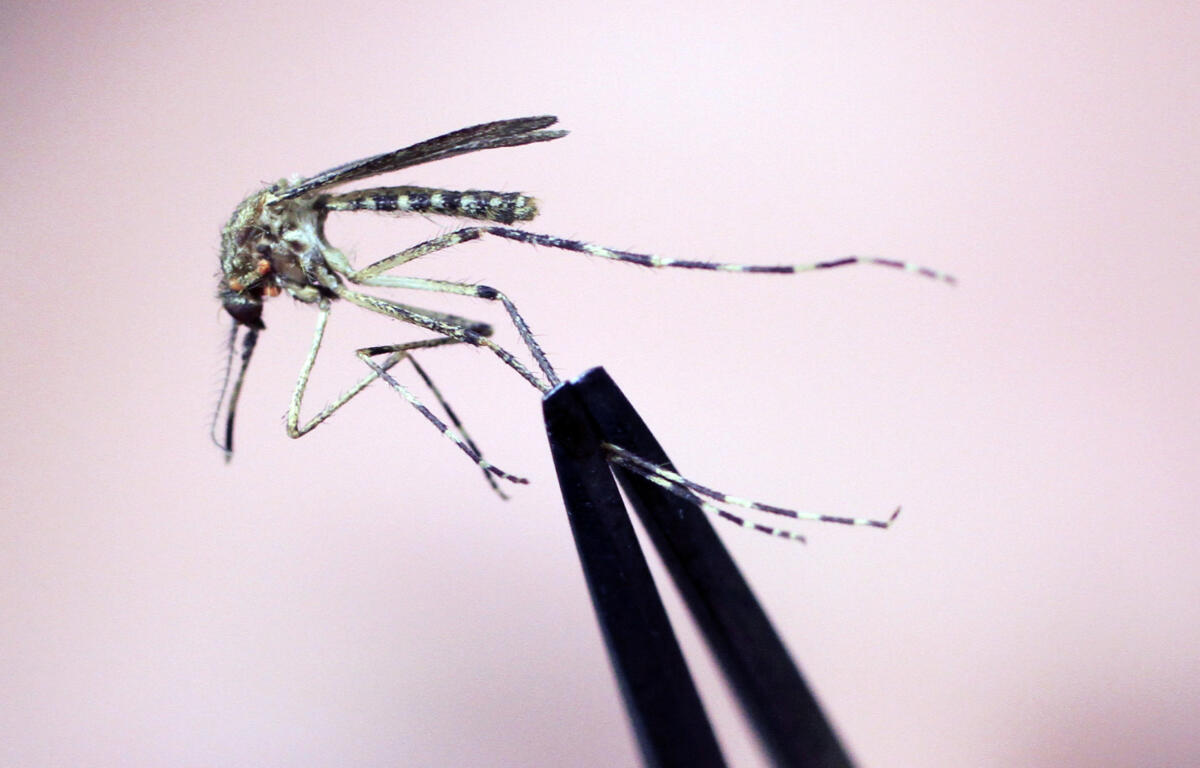ROCKINGHAM, VT (MyKeeneNow) – The Vermont Department of Health has informed Rockingham residents that a mosquito pool in the area tested positive for West Nile virus. On Wednesday, Town Health Officer and Bellows Falls Fire Chief Shaun McGinnis urged residents to follow the health department’s guidelines to avoid mosquito bites. Initially, McGinnis announced that the mosquitoes carried Eastern Equine Encephalitis (EEE), but the health department later clarified it was actually West Nile. Though EEE is rare, officials warn that it typically causes more severe symptoms than West Nile virus.
Stay Safe from Mosquito Bites and Illness
In August, health officials in Vermont, Massachusetts, and New Hampshire confirmed cases of Eastern Equine Encephalitis Virus (EEEV), a mosquito-borne illness that affects both humans and animals, though it remains uncommon.
In a recent newsletter article from Dartmouth Health, Elizabeth A. Talbot, MD, a specialist in infectious diseases at Dartmouth Hitchcock Medical Center, said taking a few basic precautions can help ensure your outdoor time is enjoyable and safe.
“Mosquito-borne illnesses are a concern, but with the right measures, that risk can be reduced,” Talbot said.
Though mosquito-borne diseases like EEEV are rare in Vermont and New Hampshire, it’s important to be prepared when spending time outdoors.
As fall approaches, you might be eager to spend more time outdoors. But recent reports of mosquito-borne diseases might have you reconsidering.
Eastern Equine Encephalitis Virus (EEEV): What You Should Know
EEEV, while uncommon, can be severe. Transmitted by infected mosquitoes, the last human cases in New Hampshire were reported in 2014, including two fatalities. This year, several mosquitoes tested positive for EEEV across Vermont, New Hampshire, and Massachusetts, with a death reported in Hampstead, NH, the article said.
New Hampshire’s State Epidemiologist, Dr. Benjamin P. Chan, emphasized that mosquitos in the state can carry EEEV, West Nile Virus (WNV), and Jamestown Canyon Virus (JCV). Vermont also reported finding mosquitoes infected with both EEEV and WNV.
Infection Remains Rare
Despite the presence of these viruses, the overall risk remains low. Most mosquito species in New Hampshire and Vermont do not carry these diseases. However, it’s still important to stay vigilant, especially since only a few mosquito pools tested positive for WNV or EEEV.
What Symptoms Should You Look For?
Most people bitten by mosquitoes don’t experience symptoms, but in rare cases, serious illnesses like WNV or EEEV can develop. The CDC notes that while most WNV cases result in mild symptoms, including fever, headache, and muscle pain, more severe neurological symptoms can develop in rare cases. EEEV can also cause severe complications, including meningitis or encephalitis.
When to Seek Medical Attention
Most mosquito bites aren’t cause for alarm. However, if you notice symptoms like fever, swelling, or pus at the bite site, it’s important to seek medical advice. Dartmouth Health’s allergist Karen Hsu Blatman, MD, suggests icing bites and using topical steroids for relief. For more serious reactions, or if symptoms escalate, a doctor’s visit is recommended.
How to Protect Yourself
While mosquitoes can carry dangerous viruses, there are simple steps you can take to protect yourself:
- Remove standing water from around your home to limit mosquito breeding.
- Wear long-sleeved shirts and pants when outdoors, particularly during dawn and dusk when mosquitoes are most active.
- In towns with high-risk mosquito populations, limit outdoor activities between 6 p.m. and 6 a.m.
- Use insect repellents containing DEET, picaridin, or oil of lemon eucalyptus.
The risk of mosquito-borne illness will decline after the first hard frost, but in the meantime, staying cautious is key.
Tick-Borne Illnesses Also Pose Risks
As fall brings cooler temperatures, ticks can still be active whenever it’s above freezing. Check yourself for both ticks and mosquito bites after spending time outside, as tick-borne diseases like Lyme disease remain a concern.




